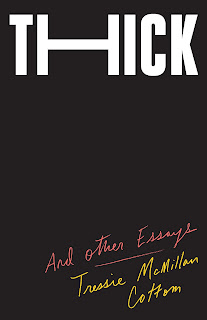
The little boomlet touting a run by current San Francisco District Attorney (that means he's our head prosecutor) to unseat the incumbent D.A. in Los Angeles illustrates one of my principles of political observation: these people nearly always look better, more desirable, when they are farther away. Sometimes even ones who didn't look so good when they were close by seem to improve when their careers carry them to new heights.
Within a day last week, I came across three articles trying to explain what retiring D.A. George Gasçon would bring to a challenge to Jackie Lacey in Los Angeles. Gasçon came to San Francisco from Los Angeles where he'd risen to the rank of Assistant Chief in the L.A.P.D. In 2009, Gavin Newsom made him chief of the S.F.P.D.; when Gavin jumped to Lt. Governor in 2011, he appointed Gasçon as D.A.; the office was vacant because Kamala Harris had gone on to bigger and better office as State Attorney General.
In many respects, Gasçon has been a stand up progressive, vocally on board with the movement to reduce incarcerations, also with a citizen initiative to reclassify non-violent drug crimes as misdemeanors, and with ending the death penalty. He's pledged to clear 9300 marijuana-related convictions. He created a "Blue Ribbon panel" that investigated the broken culture of the S.F.P.D. All that is not nothing for a prosecutor; many of his fellow prosecutors across the state seem to view him as a traitor to the law'n order team.
Yet, for this San Franciscan, he's besmirched his record by failing, ever, to charge a police officer for murdering a civilian. For a couple of years, the S.F.P.D. went on a shooting binge, killing five people who could only by an imaginative stretch be deemed a threat with to cops or anyone else:
Alex Nieto,
Amilcar Perez Lopez,
Mario Woods,
Luis Gongora Pat, and
Jessica Williams. Okay, I know that the state legal standard pretty much allows cops to shoot whenever they assert the action was "reasonable," but I think city residents had a right to expect that their D.A. represent them by bringing some charges to break this epidemic of death. And from Gasçon, crickets. Sure, he might have lost at trial, but he would have represented the people against police impunity and that should be part of a D.A.'s job description.
Gasçon's hometown (for the moment) paper, the
Chronicle offered the only one of the three Gasçon boomlet articles that mentioned this sorry part of our D.A.'s record. The
Los Angeles Times played the story evenhandedly, though emphasizing that an array of L.A. bigwigs including Mayor Garcetti and such liberal Congresscritters as Adam Schiff and Ted Lieu had thrown down for Lacey. But the
New York Times went big on what it treated as a kooky California tale, emphasizing the real contrasts between the two metropolises and their incumbent D.A.'s.
San Francisco and Los Angeles may share a similar brand of liberal politics. They are both led by mayors who see it as their jobs, in part, to push back against President Trump’s agenda, and both cities are trying to bring liberal solutions to bear on some of the same problems, like homelessness and housing. But when it comes to criminal justice, the two cities could not be more different.
Well maybe. What the Times added was something important: to Los Angeles justice advocates, Gasçon looks like a much better bet than Lacey. Patrise Cullors, a co-founder of Black Lives Matter and director of the Real Justice political action committee, told the Times that in meetings Gasçon has
“been very clear that he wants to end mass incarceration in Los Angeles. He’s been very clear that he wants to hold law enforcement accountable. He has been very clear that he does not want to lock up people with mental illness.”
Let's hope he's learned from his tenure here. He might have; he seems a well-meaning guy, but perhaps a little weak. And he did come out of a police department (L.A.P.D.) with some history of being out of control.
For what it is worth (not much), if Gasçon moves on to L.A. and knocks off Lacey, I'll be among those who applaud. Having worked against the death penalty, I'll root for any passable Lacey opponent. These days very few county D.A.s in California even charge crimes so as to make death a possible sentence; these cases demand so many resources and raise so many ethical issues, D.A.s prefer slightly lesser charges that lead to long imprisonment, but which are easier to win in court. But Lacey is an outlier. Since 2012, she has sent 22 defendants, all of color, to rot on death row, more likely to die of old age than by state action while their appeals cost Los Angeles County millions of dollars. She won't let go, so it is up to the citizens of L.A. to let her go.


































